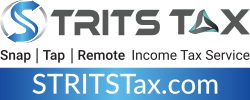Are you
Self-employed?
Any person is considered self-employed for tax purposes if that person is running a business as a sole proprietorship, independent contractor as a member of a partnership, or as a member of a limited liability company that does not elect to be treated as a corporation.
In addition to income taxes, these individuals must pay Social Security and Medicare taxes in the form of a SECA (Self-Employment Contributions Act) tax.
Self-employed people generally find their own work rather than being provided with work by an employer, earning income from a profession, a trade or a business that they operate.
Taxation
The self-employment tax in the United States is typically set at 15.30%, which is roughly the equivalent of the combined contributions of the employee and employer under the FICA tax. The rate consists of two parts: 12.4% for social security and 2.9% for Medicare. The Social Security portion of the self-employment tax only applies to the first $132,900 of income for the 2019 tax year. There is no limit to the amount that is taxable under the 2.9% Medicare portion of the self-employment tax. In fact, there is an additional Medicare tax rate of 0.9% when a self-employed individual earns above $200,000 (single).
COMMON TAX PROBLEMS IF YOU'RE SELF-EMPLOYED:
- You are unsure of how to prepare your taxes now that you are self-employed
- You did not pay sales or use taxes to the NYS or your state (fi applicable)
- You have a large tax bill because you did not pay sufficient quarterly taxes
- You did not pay payroll taxes to the IRS or NYS or your state (if applicable)
- You have several years of unfiled individual or business tax returns
- Your bank account funds have been garnished or your bank account has been frozen by the IRS or state
- There is a tax lien attached to a property you would like to sell
- You have not dealt with your back tax balances for many years

